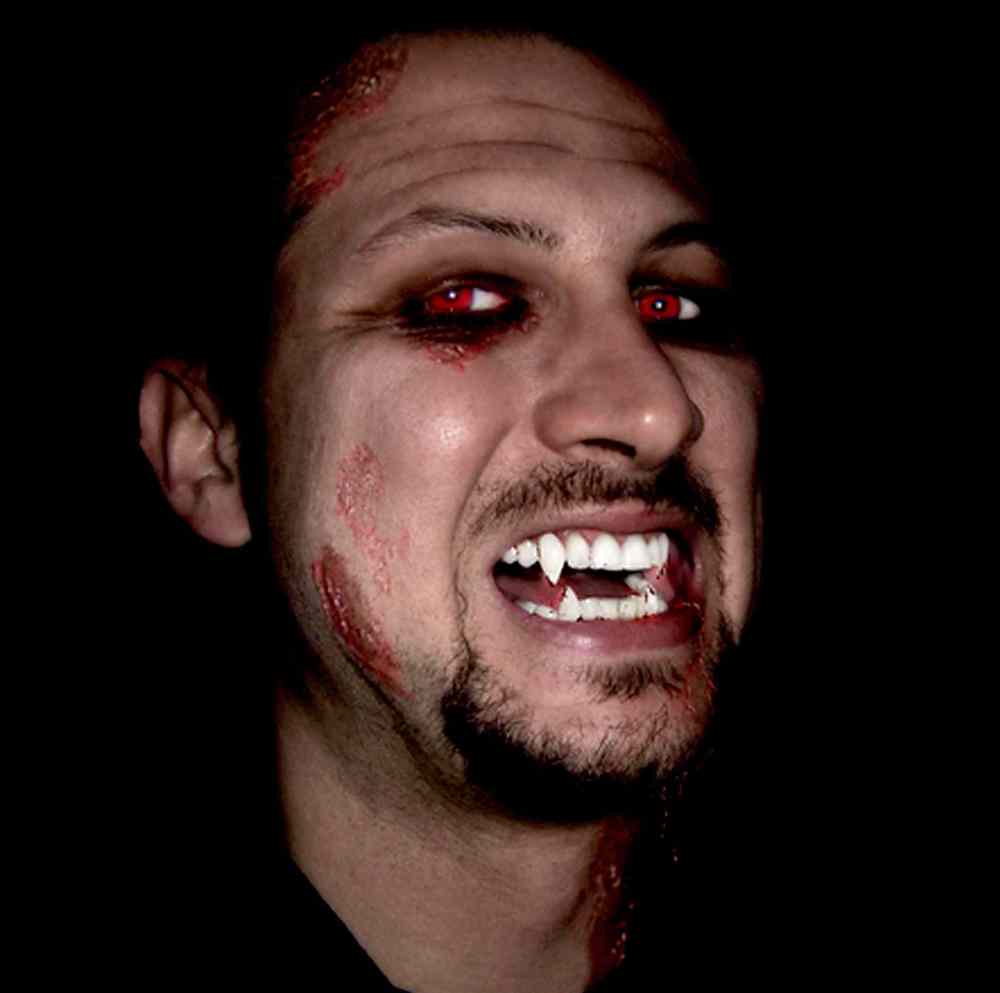Vampires are people, too
Advertisement
Read this article for free:
or
Already have an account? Log in here »
To continue reading, please subscribe:
Monthly Digital Subscription
$1 per week for 24 weeks*
- Enjoy unlimited reading on winnipegfreepress.com
- Read the E-Edition, our digital replica newspaper
- Access News Break, our award-winning app
- Play interactive puzzles
*Billed as $4.00 plus GST every four weeks. After 24 weeks, price increases to the regular rate of $19.95 plus GST every four weeks. Offer available to new and qualified returning subscribers only. Cancel any time.
Monthly Digital Subscription
$4.99/week*
- Enjoy unlimited reading on winnipegfreepress.com
- Read the E-Edition, our digital replica newspaper
- Access News Break, our award-winning app
- Play interactive puzzles
*Billed as $19.95 plus GST every four weeks. Cancel any time.
To continue reading, please subscribe:
Add Free Press access to your Brandon Sun subscription for only an additional
$1 for the first 4 weeks*
*Your next subscription payment will increase by $1.00 and you will be charged $16.99 plus GST for four weeks. After four weeks, your payment will increase to $23.99 plus GST every four weeks.
Read unlimited articles for free today:
or
Already have an account? Log in here »
Hey there, time traveller!
This article was published 18/07/2015 (3882 days ago), so information in it may no longer be current.
VAMPIRES are real. No, not the impossibly perfect Cullens in the Twilight movies or tortured but well-dressed souls in CW television shows. But human beings who self-identify as vampires and may drink blood or sleep in coffins. And these people need as much psychotherapy and medical help as the rest of us.
That’s the conclusion of a study by D.J. Williams, director of social work at Idaho State University, and published in the July issue of the peer-reviewed journal Critical Social Work.
Williams and his co-author, Emily E. Prior, a researcher at the College of the Canyons, interviewed 11 vampires from across the United States and South Africa and found they were reluctant to come out to clinicians because they were fearful about being labeled as being psychopathological or “perhaps wicked, and not competent to perform in typical social roles, such a parenting.”

However, he noted the people he interviewed “seem to function normally, based on demographic questions concerning their psychiatric histories, in their social and occupational roles, and some have achieved considerable success in their chosen careers.”
Williams advised clinicians should view vampirism from the prism of it being an “alternative identity” similar to those adopted by goths, otherkin and furries. He theorized “rapid advances in technology provide a social environment conducive to the development of unique and unconventional identities.”
“We should not be surprised to see a proliferation of nontraditional identities in the future,” Williams wrote.
Williams emphasized “it is important for helping professionals, such as social workers, to remember that people with vampire identities are just that, people — they have common issues like those with mainstream identities.”
“Self-identified vampires work regular jobs and participate in the broader communities in which they live. Like people in the mainstream, self-identified vampires may deal with stress, various health issues, relationship difficulties, education or career transitions and various other struggles that people commonly face,” he wrote.
— The Washington Post

